LEAD TEACHING FACULTY

Patricia Shehan Campbell is Donald E. Peterson Professor of Music at the University of Washington, where she teaches courses at the interface of education and ethnomusicology. A singer and pianist, with studies of the Japanese koto, Celtic harp, Karnatic Indian mridangam, and Bulgarian and Wagogo song, she has lectured internationally on the pedagogy of world music and children’s musical cultures. She is the author of Lessons from the World (1991), Music in Cultural Context (1996), Songs in Their Heads (1998, 2010), Teaching Music Globally (2004), Musician and Teacher (2008), Music, Education, and Diversity: Bridging Cultures and Communities (2018), co-author of Music in Childhood (2017, 4th edition) and Redefining Music Studies in an Age of Change (2017), co-editor of the Global Music Series and the Oxford Handbook on Children’s Musical Cultures (2013). Campbell is recipient of the 2017 Koizumi Prize and the 2012 Taiji Award for work on the preservation of traditional music through educational practice, and was designated the Senior Researcher in Music Education of the National Association for Music Education in 2002. Chair of the Advisory Board of Smithsonian Folkways and educational consultant in the repatriation of Alan Lomax recordings to the American South, she is editor of a forthcoming series of six volumes on World Music Pedagogy (2018) for practicing and prospective teachers.
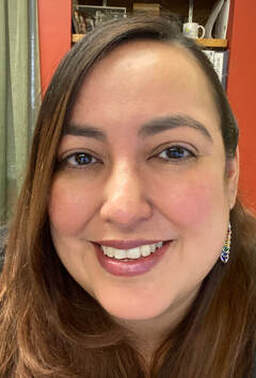
Amanda Christina Soto is the Associate Professor of Music Education at the Texas State University where she teaches undergraduate and graduate music education courses and in charge of the music education student teachers. Prior to moving to the Central Texas area, Soto taught at the University of Idaho, as a middle school band director in South Texas, and taught general music to children in Kindergarten through sixth grade within the Seattle Public Schools.
Her research interests include cultural diversity in music education, bimusical sensibilities of children, world music pedagogy, children’s musical culture, and the study of regional musics of South Texas and Mexican music. Soto holds publications in Music Educators Journal, Journal of Research in Music Education, the International Journal of Ethnomusicology Studies of World Music and Dance Education, and the newest edition of Multicultural Perspectives in Music Education. Soto has created lesson plans on traditional Mexican music and Conjunto music that appear on the Smithsonian Folkways website.
Dr. Soto has conducted clinical workshops in various musical genres of Mexico, regional Latin musical styles in the U.S., and promoted the use of Smithsonian Folkways archive in the public school classroom. She has presented her research at MENC, the College of Music Society, the Society for Ethnomusicology, the Asia-Pacific Symposium on Music Education Research, the International Society for Music Education, the International Conference on Cultural Diversity in Music Education and the College Music Society. She has created student and teacher workshops for the American Sabor: Latinos in U.S. Popular Music exhibit at the Experience Music Project/Science Fiction Museum and Hall of Fame in Seattle, WA and for the PBS documentary, Latino Music USA.
Her research interests include cultural diversity in music education, bimusical sensibilities of children, world music pedagogy, children’s musical culture, and the study of regional musics of South Texas and Mexican music. Soto holds publications in Music Educators Journal, Journal of Research in Music Education, the International Journal of Ethnomusicology Studies of World Music and Dance Education, and the newest edition of Multicultural Perspectives in Music Education. Soto has created lesson plans on traditional Mexican music and Conjunto music that appear on the Smithsonian Folkways website.
Dr. Soto has conducted clinical workshops in various musical genres of Mexico, regional Latin musical styles in the U.S., and promoted the use of Smithsonian Folkways archive in the public school classroom. She has presented her research at MENC, the College of Music Society, the Society for Ethnomusicology, the Asia-Pacific Symposium on Music Education Research, the International Society for Music Education, the International Conference on Cultural Diversity in Music Education and the College Music Society. She has created student and teacher workshops for the American Sabor: Latinos in U.S. Popular Music exhibit at the Experience Music Project/Science Fiction Museum and Hall of Fame in Seattle, WA and for the PBS documentary, Latino Music USA.
Guest Teaching Faculty (in alphabetical order)

David Aarons is assistant professor of ethnomusicology at the University of North Carolina at Greensboro where he directs the UNCG Steelpan Ensemble and teaches courses such as American Music and Music of the Black Atlantic. He earned his PhD. in ethnomusicology from the University of Washington in 2017 and a Master of Music degree in steelpan performance from Northern Illinois University in 2012. He also holds a Bachelor of Music degree from The University of the West Indies, St Augustine campus, Trinidad and Tobago (2008). His major research project focuses on Rastafari who repatriated to Ethiopia and who use reggae music as a mechanism for constructing their Promised Land amidst various challenges. His publications appear in Caribbean Quarterly and The Journal of Popular Music and Society.
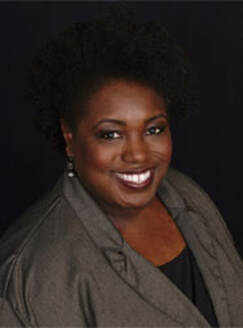
Loneka Battiste is Assistant Professor of Music Education at the University of Tennessee. Her duties include teaching elementary general and middle school choral methods and teaching graduate courses in music education. She has presented several papers and sessions at local and national conferences and symposiums and is a frequent clinician and guest conductor for elementary and middle school choirs. As a former member of the Moses Hogan Chorale and the Moses Hogan Singers, she completed her dissertation entitled “ ‘Music Down in My Soul’: Achieving a Sound Ideal for Moses Hogan Spirituals” in 2014. She currently serves as Co-Chair Elect of the Education Section for the Society of Ethnomusicology. Her research interests include social justice in music education and culturally responsive teaching in music education.
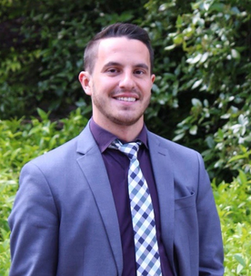
William J. Coppola is assistant professor of music education at the University of North Texas. He is co-author of World Music Pedagogy, Vol. IV: Instrumental Music Education (2018) and World Music Pedagogy, Vol. VII: World Music in Higher Education (2020). His select publications have appeared in the Journal of Research in Music Education; Action, Criticism, and Theory for Music Education; Psychology of Music; Music Education Research; and others. He is a certified Smithsonian Folkways World Music Pedagogy and a Kodály educator, and holds degrees from the University of Washington, New York University, and Hofstra University. He was previously an elementary music director for New York City Public Schools.
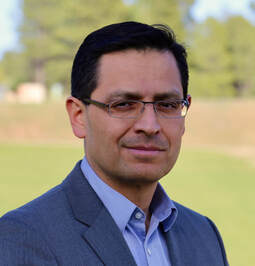
León F. García Corona is a music scholar whose work focuses on the intersections between music, race, and social justice in Mexico, and among its diasporic communities in the United States. His scholarship unveils connections between the culture industries, social class, race, sentimentality and The State oppression of civil liberties. His scholarship has been published by Oxford University Press, Cambridge University Press, Latin American Music Review, American Music, the Canadian Journal of Latin American and Caribbean Studies, and the Smithsonian Institution. He is the co-editor and contributor of Voices of the Field: Pathways in Public Ethnomusicology (with Kathleen Wiens, Oxford University Press), in which he and other contributors explore public engagement in ethnomusicology. He is currently working on a monograph entitled Enamored Voices: Music, Migration and Social Struggle in Close Harmony, where he explores close harmony singing in the United States and Mexico and the ways it intersects with issues of race and cultural membership.
García Corona delivered invited lectures and workshops at the University of New Mexico, Kent State University, Victoria University of Wellington, New Zealand, Universidad Veracruzana in Mexico, University of Idaho, University of Michigan, and University of Washington, among others. García Corona received his Ph.D. in ethnomusicology from the University of California, Los Angeles. Previously he worked as a producer for the Smithsonian Institution, where he founded Smithsonian Folkways Magazine and produced dozens of featured articles and educational initiatives, including the award-winning Jazz Educational Website. He is an assistant professor of musicology at the Thornton School of Music at the University of Southern California.
García Corona delivered invited lectures and workshops at the University of New Mexico, Kent State University, Victoria University of Wellington, New Zealand, Universidad Veracruzana in Mexico, University of Idaho, University of Michigan, and University of Washington, among others. García Corona received his Ph.D. in ethnomusicology from the University of California, Los Angeles. Previously he worked as a producer for the Smithsonian Institution, where he founded Smithsonian Folkways Magazine and produced dozens of featured articles and educational initiatives, including the award-winning Jazz Educational Website. He is an assistant professor of musicology at the Thornton School of Music at the University of Southern California.

Guo, Ke (郭可) is a PhD student in music education with a cognate in ethnomusicology at the University of Washington, school of music. She was born in Wuhan, China, and studied applied mathematics at UCLA for her B.S. degree. She then obtained an M.S. in management science & engineering from Stanford University and an M.M. in music education from San José State University. Before pivoting into music education, she worked in the consulting and tech industry.
Her research in world music education and ethnomusicology has covered topics in both Chinese music and Sephardic music. As a vocalist and multi-instrumentalist, she is also active in concerts, and has offered individual concerts as well as collaborative concerts in America and Europe. Currently focusing on the topic of worldwide transmission and acquisition of Sephardic music both within and outside of the Sephardic community, she is excited to conduct future field research as a music educator and an ethnomusicologist in the Iberian Peninsula, Turkey, and other countries around the Mediterranean sea.
Her research in world music education and ethnomusicology has covered topics in both Chinese music and Sephardic music. As a vocalist and multi-instrumentalist, she is also active in concerts, and has offered individual concerts as well as collaborative concerts in America and Europe. Currently focusing on the topic of worldwide transmission and acquisition of Sephardic music both within and outside of the Sephardic community, she is excited to conduct future field research as a music educator and an ethnomusicologist in the Iberian Peninsula, Turkey, and other countries around the Mediterranean sea.
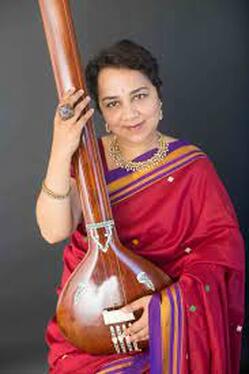
Indian Classical Vocalist, composer and educator, Srivani Jade is a captivating performer, and story-teller of the tradition she represents. Her singing is a celebration of her life and journey. Her spirited performances are intelligent, uplifting, and transport you to a place of joy and peace. Srivani Jade was introduced to music at the age of four by her father Bhavani Prasad Jade and uncle Raghavendra Tilwalli. She has studied Khayal with Dr. Sharad Gadre in the Gwalior style and with Pandit Parameshwar Hegde in the Kirana style. She identifies deeply with the Bhakti tradition, and enjoys singing light classical music (Thumri-Dadra) and Devotional repertoire (Bhajans, Abhangs, Devaranama).
PERFORMER: Srivani grew up performing on the stage and radio, and winning competitions around India. She debuted as a Khayal singer in Ragamala's Utsav festival (Seattle, 2008) and Devanandan Ubhayaker Yuva Sangeet Utsav for emerging artists (Bengaluru, 2009). She has performed in venues in North America and India, such as Kalakendra (Portland), Ragamala (Seattle), Chhandayan (New York), Anindo Chatterjee Institute of Tabla (Seattle), Indian Music Society (Houston), Suburban Music Circle (Mumbai), and major music festivals such as the Sawai Gandharv Bhimsen Mahotsav (2014). As a soloist for Seattle-based B'shnorkestra's Global Concerto series (Tagore's Prarthona), her performance received critical acclaim in the 2016 Earshot Jazz Festival.
COMPOSER: Srivani is a composer of both classical (bandish, tarana) and devotional/sacred music (bhajans). She is deeply inspired by the poetry of Meera and Kabir, and frequently composes and sings them.
Srivani's compositions inspired by Annette Solyst's miniature 'Peacock' paintings was featured as a month-long installation at Jack Straw New Media Gallery (Raag-rang) in 2014. Her work Soul Raga, featuring One-on-One dialogues between Indian Vocals and other World Music Traditions received grant support from 4Culture and Jack Straw Productions.
She has to her credit a growing number of solo albums of original music. She received an NEA grant for her musical composition work on the existential love poetry of Meera Bai (Astitva, 2011). She has composed and recorded theme vocals for independent films such as Tapasya (2003), Siddhanto (2014) and stage productions such as Indian Ink (Sound Theater Company, 2014).
EDUCATOR: Srivani is a sought after teacher/Guru in the Greater Seattle area. She serves as Visiting Artist with the University of Washington School of Music's Ethnomusicology program. She has also served residencies at UW Bothell, University of Puget Sound, Western Washington University, and University of British Columbia (Canada). As a three-times Washington State Master grant recipient, she has worked as a culture-bearer teacher and trained apprentices in the traditions of Khayal, Thumri-Dadra, and Bhakti.
COMMUNITY: Srivani serves as the President of Ragamala, a 501(c)(3) non-profit promoting Indian Classical Music in the Greater Seattle area since 1981. She was founding editor of Ragavani Journal of South Asian Music and Dance (2007-08). She has served on the board of Kirkland Performance Center (2010-12), and helped curate the Namaste Kirkland annual performance series focused on the performing arts of India. At her teaching studio Gayaki, she hosts recitals and workshops, where students interact, perform and learn from visiting musicians. She has received a Washington State Arts Commission Fellowship Award for her role in promoting Indian classical music, and building a community around it.
PERFORMER: Srivani grew up performing on the stage and radio, and winning competitions around India. She debuted as a Khayal singer in Ragamala's Utsav festival (Seattle, 2008) and Devanandan Ubhayaker Yuva Sangeet Utsav for emerging artists (Bengaluru, 2009). She has performed in venues in North America and India, such as Kalakendra (Portland), Ragamala (Seattle), Chhandayan (New York), Anindo Chatterjee Institute of Tabla (Seattle), Indian Music Society (Houston), Suburban Music Circle (Mumbai), and major music festivals such as the Sawai Gandharv Bhimsen Mahotsav (2014). As a soloist for Seattle-based B'shnorkestra's Global Concerto series (Tagore's Prarthona), her performance received critical acclaim in the 2016 Earshot Jazz Festival.
COMPOSER: Srivani is a composer of both classical (bandish, tarana) and devotional/sacred music (bhajans). She is deeply inspired by the poetry of Meera and Kabir, and frequently composes and sings them.
Srivani's compositions inspired by Annette Solyst's miniature 'Peacock' paintings was featured as a month-long installation at Jack Straw New Media Gallery (Raag-rang) in 2014. Her work Soul Raga, featuring One-on-One dialogues between Indian Vocals and other World Music Traditions received grant support from 4Culture and Jack Straw Productions.
She has to her credit a growing number of solo albums of original music. She received an NEA grant for her musical composition work on the existential love poetry of Meera Bai (Astitva, 2011). She has composed and recorded theme vocals for independent films such as Tapasya (2003), Siddhanto (2014) and stage productions such as Indian Ink (Sound Theater Company, 2014).
EDUCATOR: Srivani is a sought after teacher/Guru in the Greater Seattle area. She serves as Visiting Artist with the University of Washington School of Music's Ethnomusicology program. She has also served residencies at UW Bothell, University of Puget Sound, Western Washington University, and University of British Columbia (Canada). As a three-times Washington State Master grant recipient, she has worked as a culture-bearer teacher and trained apprentices in the traditions of Khayal, Thumri-Dadra, and Bhakti.
COMMUNITY: Srivani serves as the President of Ragamala, a 501(c)(3) non-profit promoting Indian Classical Music in the Greater Seattle area since 1981. She was founding editor of Ragavani Journal of South Asian Music and Dance (2007-08). She has served on the board of Kirkland Performance Center (2010-12), and helped curate the Namaste Kirkland annual performance series focused on the performing arts of India. At her teaching studio Gayaki, she hosts recitals and workshops, where students interact, perform and learn from visiting musicians. She has received a Washington State Arts Commission Fellowship Award for her role in promoting Indian classical music, and building a community around it.
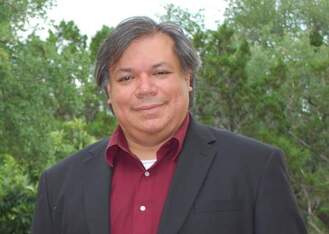
John A. Lopez is Professor and the Founder and Director of the Latin Music Studies area at Texas State University. Starting at a young age, John A. Lopez was exposed to some of the best in Latin music, his father Aruto Lopez was the founder and director of one of the best mariachis to ever come out of San Antonio, Mariachi Chapultepec. His mother, Beatriz Llamas, La Paloma del Norte was a famous mariachi and conjunto singer; she has been inducted into the tejano and conjunto halls of fame. Lopez began his musical career as a percussionist at Thomas Edison High School in San Antonio, TX and upon graduating attended Texas State University as a Music Major. He eventually received a MM in Percussion Performance and Composition from Texas State in 1992. Shortly after graduating he began working as a part-time faculty member at Texas State in charge of marching percussion; however, he quickly started to create classes in the music department that highlighted his passion for Latin music. This inevitably evolved into the expansion of Latin music at Texas State. In 2003 Mr. Lopez became a tenured Associate-Professor as well as the founder and coordinator of the Latin Music Studies area. Starting with the creation of Salsa del Rio in 1995, the Latin Music Studies area has grown to include Mariachi Nueva Generación, Mariachi Lince De Oro, Orquesta del Rio and Mariachi Infantil, the youth mariachi program. The total number of students involved in these programs has grown to over 100.
As a performer, Mr. Lopez is very active in the Salsa music community playing Latin percussion with some of the best groups in the Central Texas area. Some of the bands he has played with include La Predilecta, Naningo, Tony Guerrero, Orquesta Tradicion, El Tumbao, Mochate, Son Playado, and Colao. He also served as Music Director for The Mambo Kings of San Antonio during its existence. Under his direction, the Salsa and Mariachi ensembles have gained much recognition throughout the state, as well as nationally and internationally through several performance opportunities. Salsa del Rio has performed internationally at the Montreaux Jazz Festival, Brienz Jazz Festival, Carnaval de Nice, Cancun and Mexico City, Mexico. Nationally, they have performed at the prestigious Notre Dame Jazz Festival where they have won several awards. Mariachi Nueva Generación has quickly risen as one of the best university Mariachi ensembles in the state of Texas. They compete regularly at the Mariachi Vargas Extravaganza held annually in December in San Antonio, TX, where they have won first place seven out of the last nine years that they have competed. Internationally, Mariachi Nueva Generación has toured Europe alongside the Texas State University Symphony Orchestra. Most recently Mariachi Nueva Generación and Salsa del Rio toured and performed in Chile (2012). In the summer of 2016 both ensembles showcased their talents on a performance and recruitment tour of the West Coast with stops in Las Vegas, NV, Los Angeles, Seaside, Salinas, and El Cerrito, CA.
As a performer, Mr. Lopez is very active in the Salsa music community playing Latin percussion with some of the best groups in the Central Texas area. Some of the bands he has played with include La Predilecta, Naningo, Tony Guerrero, Orquesta Tradicion, El Tumbao, Mochate, Son Playado, and Colao. He also served as Music Director for The Mambo Kings of San Antonio during its existence. Under his direction, the Salsa and Mariachi ensembles have gained much recognition throughout the state, as well as nationally and internationally through several performance opportunities. Salsa del Rio has performed internationally at the Montreaux Jazz Festival, Brienz Jazz Festival, Carnaval de Nice, Cancun and Mexico City, Mexico. Nationally, they have performed at the prestigious Notre Dame Jazz Festival where they have won several awards. Mariachi Nueva Generación has quickly risen as one of the best university Mariachi ensembles in the state of Texas. They compete regularly at the Mariachi Vargas Extravaganza held annually in December in San Antonio, TX, where they have won first place seven out of the last nine years that they have competed. Internationally, Mariachi Nueva Generación has toured Europe alongside the Texas State University Symphony Orchestra. Most recently Mariachi Nueva Generación and Salsa del Rio toured and performed in Chile (2012). In the summer of 2016 both ensembles showcased their talents on a performance and recruitment tour of the West Coast with stops in Las Vegas, NV, Los Angeles, Seaside, Salinas, and El Cerrito, CA.
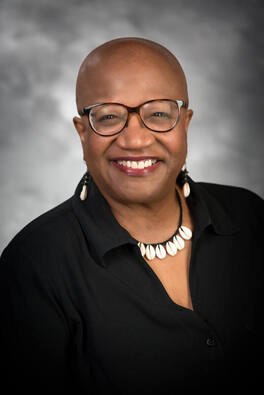
Connie McKoy is Marion Stedman Covington Distinguished Professor and Director of Undergraduate Studies in the UNCG School of Music, where she teaches undergraduate and graduate music education courses. She holds a BM in Music Education from the Oberlin Conservatory of Music and MM and PhD degrees from UNCG. She has 19 years of public-school teaching experience as a general music teacher, choral director, and band assistant.
Her research, which has been presented nationally and internationally, has focused on children’s world music preferences, music teachers’ cross-cultural competence, and culturally responsive pedagogy in music. Her work has been published in The Journal of Research in Music Education, The Bulletin of the Council for Research in Music Education, Update: Applications of Research in Music Education, Music Education Research, The Journal of Music Teacher Education, and the International Journal of Music Education. She has served on the editorial review committees of the NAfME publications The Music Educators Journal and Update: Applications of Research in Music Education and is currently on the editorial review committee for Qualitative Research in Music Education.
In 2017 & 2019, she participated in the Yale Symposium on Music in Schools and contributed to the 2017 symposium document, Declaration on Equity in Music for City Students. Dr. McKoy is co-author of Culturally Responsive Teaching in Music Education: From Understanding to Application, published by Routledge. She is an active clinician for state, regional, and national music education organizations, is certified in Level III of Orff Schulwerk pedagogy and has taught recorder for Levels I-III. She is a past president of the North Carolina Music Educators Association and is a Past Chair of the Society for Music Teacher Education.
Her research, which has been presented nationally and internationally, has focused on children’s world music preferences, music teachers’ cross-cultural competence, and culturally responsive pedagogy in music. Her work has been published in The Journal of Research in Music Education, The Bulletin of the Council for Research in Music Education, Update: Applications of Research in Music Education, Music Education Research, The Journal of Music Teacher Education, and the International Journal of Music Education. She has served on the editorial review committees of the NAfME publications The Music Educators Journal and Update: Applications of Research in Music Education and is currently on the editorial review committee for Qualitative Research in Music Education.
In 2017 & 2019, she participated in the Yale Symposium on Music in Schools and contributed to the 2017 symposium document, Declaration on Equity in Music for City Students. Dr. McKoy is co-author of Culturally Responsive Teaching in Music Education: From Understanding to Application, published by Routledge. She is an active clinician for state, regional, and national music education organizations, is certified in Level III of Orff Schulwerk pedagogy and has taught recorder for Levels I-III. She is a past president of the North Carolina Music Educators Association and is a Past Chair of the Society for Music Teacher Education.
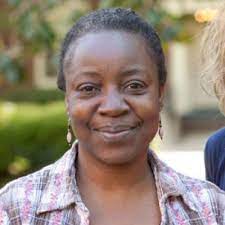
Dr. Jean Ngoya Kidula, Professor of Music (Ethnomusicology) at the University of Georgia (UGA) , studied at UCLA, East Carolina University, and the University of Nairobi, Kenya. She specializes in African musicology, Indigenous, classic and contemporary ritual and popular musics of Africa and its Diaspora, as well as in the dynamics of the music curriculum in educational institutions . Jean Ngoya is active in the performance of a variety of African music genres. Currently she directs two African Music Ensembles at UGA and in the local larger Athens, GA community.
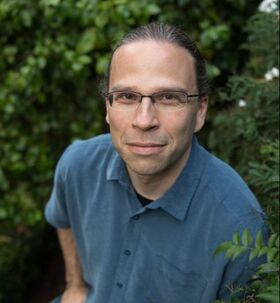
John-Carlos Perea is an electric bassist, singer, cedar flutist, ethnomusicologist, and associate professor of American Indian Studies in the College of Ethnic Studies at San Francisco State University. He is author of Intertribal Native American Music in the United States and Music and Modernity Among First Peoples of North America, and with research interests in jazz and improvised music, and urban American Indian lived experiences and cultural productions.
